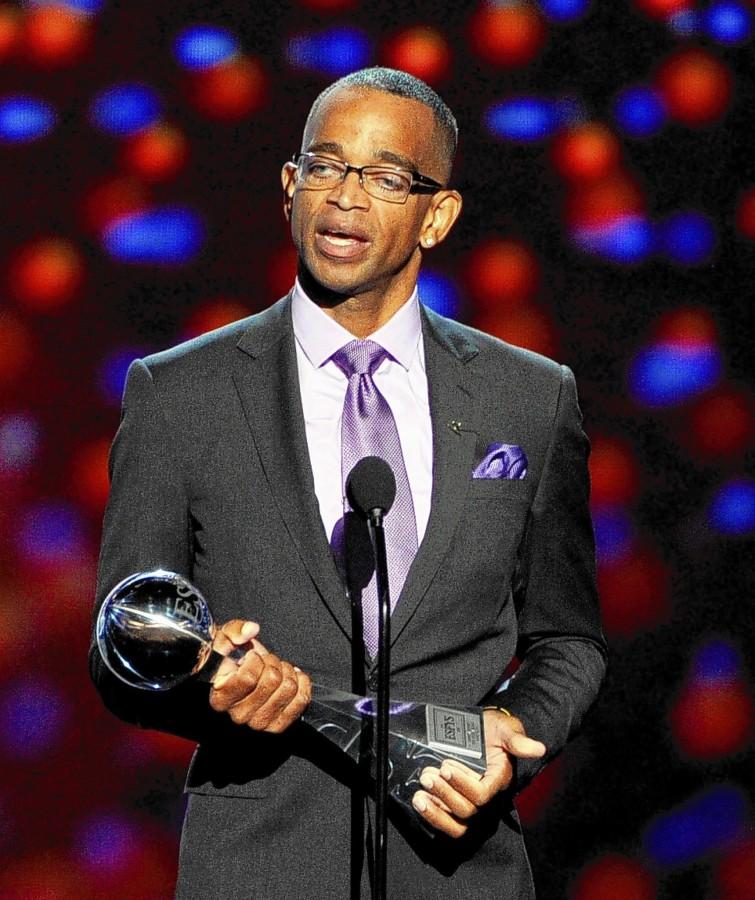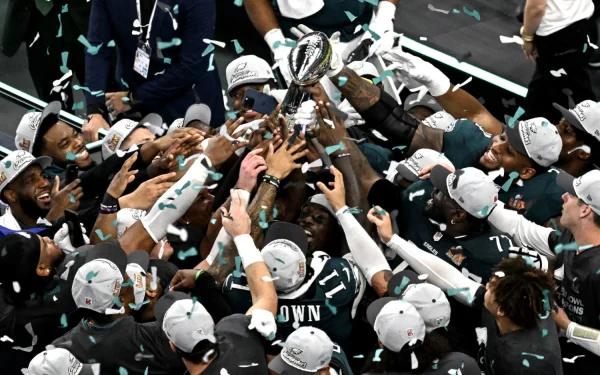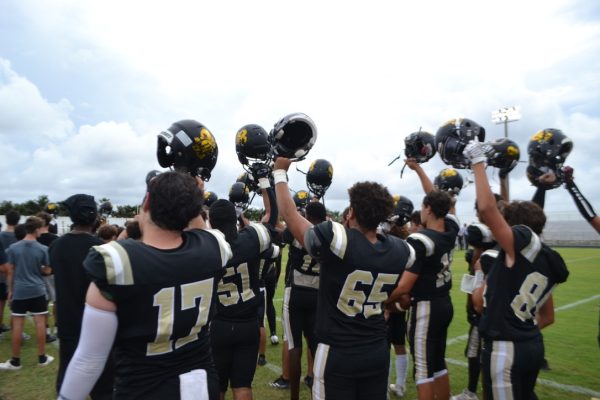Stuart Scott’s life is one to be celebrated
“He must be buttah cause he’s on a roll.”
Stuart Scott was on a roll; his life was on a roll. Many who did not know him would be shocked to become aware that Scott had cancer. Fighting through cancer, the now former legendary SportsCenter anchor acted like his life was not in danger.
He did not preoccupy himself with death. He only cared about the how he lived.
Sadly, on Sunday, January 4th, 2015, Stuart Scott lost his battle to cancer at the young age of 49.
Scott was initially diagnosed with cancer in 2007 after he was rushed to the hospital for an emergency appendectomy during a Monday Night Football broadcast. During the surgery, cancer was found and removed, but it returned in 2011 and 2013.
Stuart Scott battled. The way in which he fought was an inspiration to other cancer patients and all who knew him.
Scott underwent several surgeries in addition to rigorous rounds of chemotherapy. But these very difficult events did not stop Scott from being the man he was.
Cancer did not deter Scott from doing his rigorous exercise workouts; showing up to work at ESPN; and most importantly to him, being there for his two daughters.
Scott said in his storied 2014 ESPY’s speech for the Jimmy V Perseverance Award, “When you die, it does not mean that you lose to cancer. You beat cancer by how you live, why you live, and in the manner in which you live.”
Boo-yah.
In the midst of chemotherapy, Scott would leave that same day to work strenuously in the gym; throw-up afterwards; eat a little to satisfy his sensitive but empty stomach; and prepare himself to do the 11p.m. SportsCenter. And not only did Scott fight through cancer, he also battled a blind left eye and a severe eye disorder that could cause Scott to lose his vision at any time or simply cause his eyelids to shut. Scott was unflappable. He wanted to live each day as if he were completely healthy.
Stu was just “cooler than the other side of the pillow,” a favorite phrase of his during his highlight reel run-throughs.
In addition, Scott spent his time showing up to charity events and interacting with people fighting cancer. Scott inspired people to enjoy life, and many looked up to him as a role model of the way people should live.
When Stuart Scott died Sunday morning, it was painful for several broadcasters to break the news.
“I cannot believe that I am now sitting here on television reporting to you … that Stuart Scott has died,” grieved Rich Eisen, former colleague of Scott at ESPN and currently at the NFL Network. “The fact that he has passed away is absolutely mind-boggling. One of the most joyful, full of life individuals I have ever come across … He broadcast the same way a groundbreaking broadcaster did.”
Stuart Scott joined ESPN in 1993 introducing his unique journalistic style of bringing hip-hop culture and his catch phrases to sports reporting.
Whether its Scott saying, “They call him the windex man ‘cause he’s always cleaning the glass,” or “You ain’t gotta go home, but you gotta get the heck outta here” over a blocked shot, he always had something witty and entertaining to holler during the highlight reel on SportsCenter. He brought the hip-hop to journalism.
He was not only groundbreaking for his style, but also groundbreaking for the African-American culture, especially those who pursued a career in journalism. And just like other revolutionary professionals, Scott ignored the critics; he did not care.
His work ethic was so unprecedented that it even shocked his colleagues. In memory of Scott, Stephen A. Smith recounted the time during the 2013 NBA Finals when Scott (battling cancer at the time) was hosting SportsCenter live that night from Miami. Stephen A. observed that Scott was studying the SportsCenter notes during the game. When asked, Scott informed Stephen A. that he has to memorize his SportsCenter script in case his vision blacks out, and he could not read the teleprompter.
SportsCenter will always have a empty chair for Scott, and his legacy will live on for a long time.
Clearly, Scott meant much more than just a co-worker to his ESPN colleagues or just an anchor on TV to viewers; he was inspirational and life-changing to many.
Painfully fighting tears to break the news, ESPN anchor Hannah Storm perfectly said, “We choose not to say that Stuart lost to cancer at the age of 49; instead, we will simply say: we all lost Stuart.”











